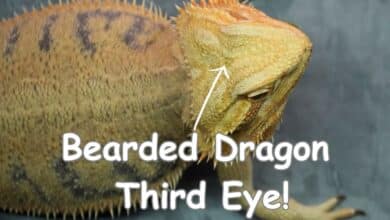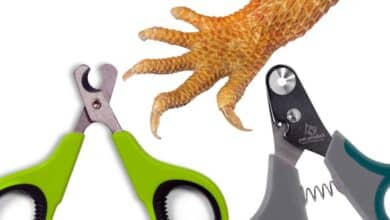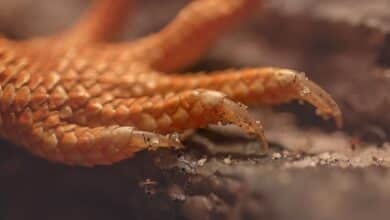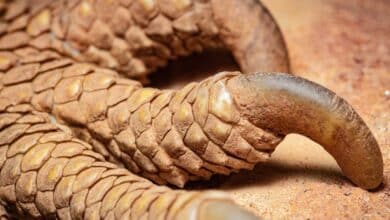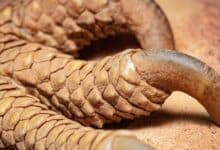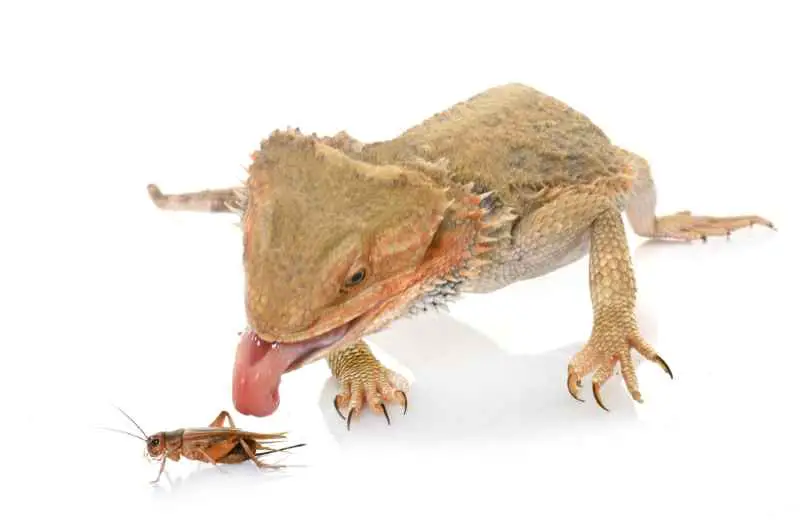Bearded Dragon Calcium: How to Supplement and Risks to Avoid
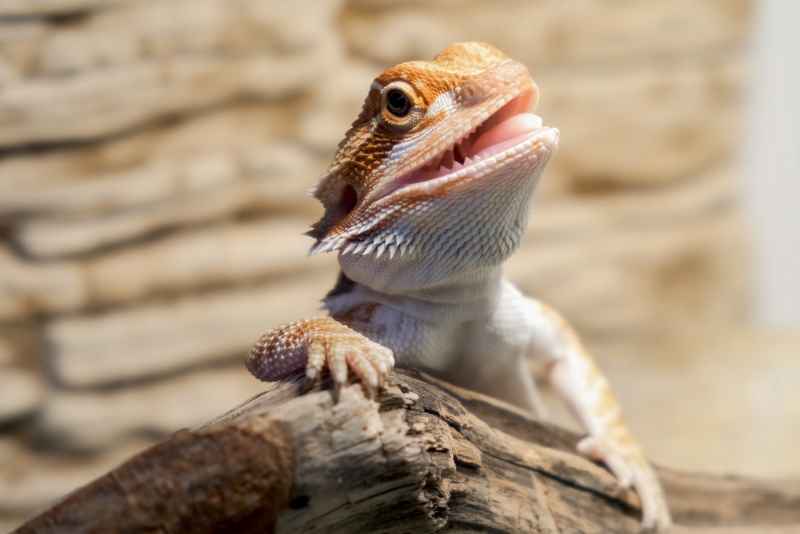
Calcium is important for everyone and that definitely includes your Bearded Dragon. While you and I may simply drink a glass of milk, enjoy a cheesy pizza, or even invest in vitamins to take on our own, your Bearded Dragon is in an enclosed environment and so you’ll need to strategize a healthy diet for them.
Watching your Beardie’s calcium isn’t just about sprinkling their food with vitamins on a schedule, however, and it’s important to understand not only the way it functions in their bodies but to also have a few different methods at play to ensure that they get the nutrition that they need.
With that in mind, our article today is all about calcium for your Bearded Dragon, so read on for the important facts that you really need to know!
Contents
The Best Ways To Provide Your Bearded Dragon With Calcium
Making sure that your Bearded Dragon gets enough calcium is vital. Aside from ensuring that they have strong bones, their calcium levels also affect their metabolism and their muscular system, as well. As they are in an enclosed environment, even if they ate the same foods that they do in the wild, there is more that you need to do.
With calcium, they would normally get this from the foods that they eat, however there is a vitamin called D3 that they would get from basking outside, and without it they can’t use the calcium that they eat, no matter the amount.
As such, it is crucial to use a few strategies to ensure that your Beardie gets every checkmark checked on their nutritional profile. Let’s take a look at how that is done!
Powder Supplement
Aside from a multivitamin 3 to 5 times a week, your Bearded Dragon is going to need a regular and reliable supply of calcium and also of Vitamin D3, so that their bodies can use it. This is easy to do, as a number of D3 + calcium supplements are available, such as Repcal and Zoo Med.
These supplements allow you to dust their food, even the live insects, so that your Beardie will get a measured dose of calcium and the Vitamin D3 that makes it useful. These even come in flavored varieties, made with real fruits, just in case your Beardie is a picky eater.
Light
Your Bearded Dragon also needs a lot of sunlight, but in an enclosure that will mean full spectrum ultraviolet lighting. You can’t just leave it on all of the time, either – after all, you wouldn’t like it if the sun never went down, would you?
As such, once you’ve got this light, it needs to be on for 12 to 14 hours a day for most of the year, placed in a corner with a basking rock for your Beardy, and when winter rolls around you can switch it to an 8-hour-a-day schedule.
This will let your Dragon bask like they would in the wild and the UV light will help their body produce Vitamin D3 naturally, as an extra level of security to ensure that they get it and also as a way to make their environment feel a little more like home.
Diet
While they are young, Bearded Dragons require about a 50/50 ratio of insects and plant matter, though as they get older it will eventually change to around 90% plant matter and 10% insects – though this change will happen very slowly over time.
With insects, sprinkling them with the calcium and D supplement or ‘gut loading’ them will help to provide calcium on the insect end of their diet, while sprinkling a bit on their fruits and veggies will cover the rest.
You can also select plant matter that has high calcium already, such as kale, collard greens, blackberries, squash, and a Beardie favorite – sweet potatoes!
Why Your Bearded Dragon Needs Calcium supplements
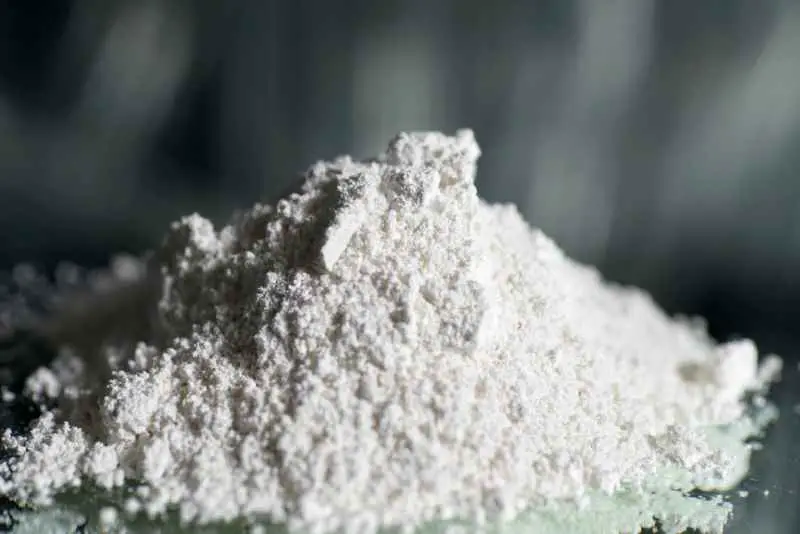
With the options of light and naturally occurring calcium options for their diet, why do you need supplements? Well, the best way to think of it is ‘hedging your bets’.
In the wild, they’ve got the sun to make sure that they can get the UV light that they need, when they need it, and they also have distinctive diets based on where they live.
When you have a captive Bearded Dragon, you can’t realistically simulate the exact same diet and the need to ensure that they get their vitamins means that calculated doses of D3, Calcium, and vitamins on a regular schedule are the only reliable way to do this.
Without calcium, they won’t grow strong bones or maintain the ones that they have, and it can also affect their muscles and cause their metabolism to behave dangerously.
Without enough calcium in their diet, their bodies will actually leech it from their bones, and you definitely don’t want that! As such, supplements are absolutely vital to good health.
Baby Bearded Dragon vs Adult
Your Beardies calcium requirements are going to vary quite a bit based on their age. A developing Dragon, for instance, is growing and needs to develop a healthy and strong skeleton, so they will need more than a senior might, and a Dragon mother-to-be will need a different amount of calcium than a standard adult.
Sunlight also plays a factor, so this is something that we need to accommodate for. The best breakdown, to give you an example and simplify things a little, looks roughly like this:
- Hatchling – Hatchlings require calcium each and every day.
- Young Adult – Young Adults will need calcium supplements 3 to 4 times a week.
- Adult – Adults are stronger and should get calcium 1 or 2 times a week.
- Adult with sunlight – An adult that actually has actual sunlight from a south-facing window still needs calcium but should get most from their diet, so you should supplement once every 2 weeks.
- Pregnant/sexually active female – A mother-to-be Beardie needs calcium supplements 3 to 4 times per week in order to ensure the proper development of her young and to maintain her own health as well.
What Happens If They Don’t Get Enough Calcium?
If your Bearded Dragon is not getting enough calcium, then their body is going to get it somewhere, and that somewhere is your Dragon’s bones. Over time, the body will weaken them by leeching out the calcium at an increasing rate and your Beardie can develop metabolic bone disease.
This is actually quite common for captive Bearded Dragons, which is why you hear articles like these extolling the virtues of Calcium and D3 supplements. It’s very easy to avoid, so it’s important that you stock up on the supplement and be aware of the expiration dates, to make sure that your Beardie is safe.
With metabolic bone disease, your Dragon’s bones can become brittle enough to break, and their muscular system loses the ability to properly contract and give your Beardie their mobility. Even with treatment, this may result in a paralyzed limb, so it’s absolutely vital that you supplement their diets with D3 and calcium.
They can’t do it on their own, after all, so it’s going to be up to you to keep your Dragon happy and healthy!
Can your Beardie overdose on calcium?
Yes, it IS possible for your Beardie to overdose on calcium, just like humans can take too many of a vitamin or a mineral themselves.
As such, it’s important to know how much that you should give your Bearded Dragon and to resist the urge to simply sprinkle calcium on everything – despite the old saying to the contrary, you CAN indeed get too much of a good thing but this is easy to avoid if you use our tips.
What Happens If You Give Your Bearded Dragon Too Much Calcium?
If you give your Bearded Dragon too much calcium then they can definitely become ill and there are different health conditions which may manifest. For instance, too much calcium taxes the kidneys, which may eventually fail.
Hypercalcemia is another possibility, and in this case the body keep turning the excess calcium into bone, leading to malformation of your Beardies skeletal system! They will also start to lose mobility, as muscles and bones become stiffer in response to excess portions of the mineral.
As such, you need to carefully measure the amounts that you give them and resist the urge to simply dust everything – this doesn’t work for human health and it doesn’t work for Beardies.

Signs of calcium overdose with Bearded Dragon
Signs that your Bearded Dragon is getting too much calcium will definitely be noticeable. It starts off with them becoming more sluggish than usual and their potty habits will change, as they tend to become constipated, and this in turn is painful for them so they may respond to you differently.
As it progresses, more and more stiffness will arise as their muscles and bones begin affecting their overall mobility, and this is where permanent paralysis or worse becomes a very real danger. If you see any of these symptoms, it’s a good idea to bring your Beardie in for a checkup.
If caught early, dietary issues are easy to correct, so whenever you are in doubt about your Beardie’s health it’s well worth a visit now to ensure their chances at a long and happy life in the years to come later.
Does reptile calcium powder expire?
While you might have heard that it will last forever if you store it somewhere dark, this is definitely not the case. Reptile Calcium, like everything else, has a shelf life, it’s just that it tends to have a very long one.
Depending on the brand, it might be anywhere from 1 to 5 years, but you need to check it to make sure. It’s best to check the date at the store before purchase, but if you haven’t checked what you have in stock, then it’s a good idea to do this now.
That way, if you have more than one container, you can arrange them so that the ones that expire first will be used first and you won’t have to worry about accidentally feeding them expired calcium.
We recommend writing on the side in big numbers with a permanent marker – it’s ugly but you can’t miss it – and that’s exactly what you want where your Beardie’s health is concerned.
Should you use expired calcium?
No, you don’t want to use expired calcium, as there is no guarantee that it is still effective. Worse, with multiple openings and closings of the jar that it’s in, bacteria can get inside, and with supplemental mixes you never know how the individual ingredients will react together once they’ve all gone bad.
If it’s expired, throw it away and replace it – it’s as simple as that.
Some final words on supplements and Beardies
As you can see, there’s a little more to calcium and D3 supplements than meets the eye, and you can’t just ‘wing it’ without accidentally endangering your Beardie’s health. Thankfully, you can use our tips to strategize and make sure that your Bearded Dragon gets the right amount of calcium, no more and no less!
Make sure that they have full spectrum UV lighting and learn what veggies and fruits are already high in calcium, and this will help to hedge your bets. After that, make sure that they are getting the proper amount for their age and your Beardie’s diet should be just about perfect.
Don’t worry – this seems like a lot right now, but once you know the measurements and get in the habit of dusting at the right times, it will become automatic and you won’t even think about it.
Your happy, healthy Bearded Dragon will certainly appreciate your efforts!
